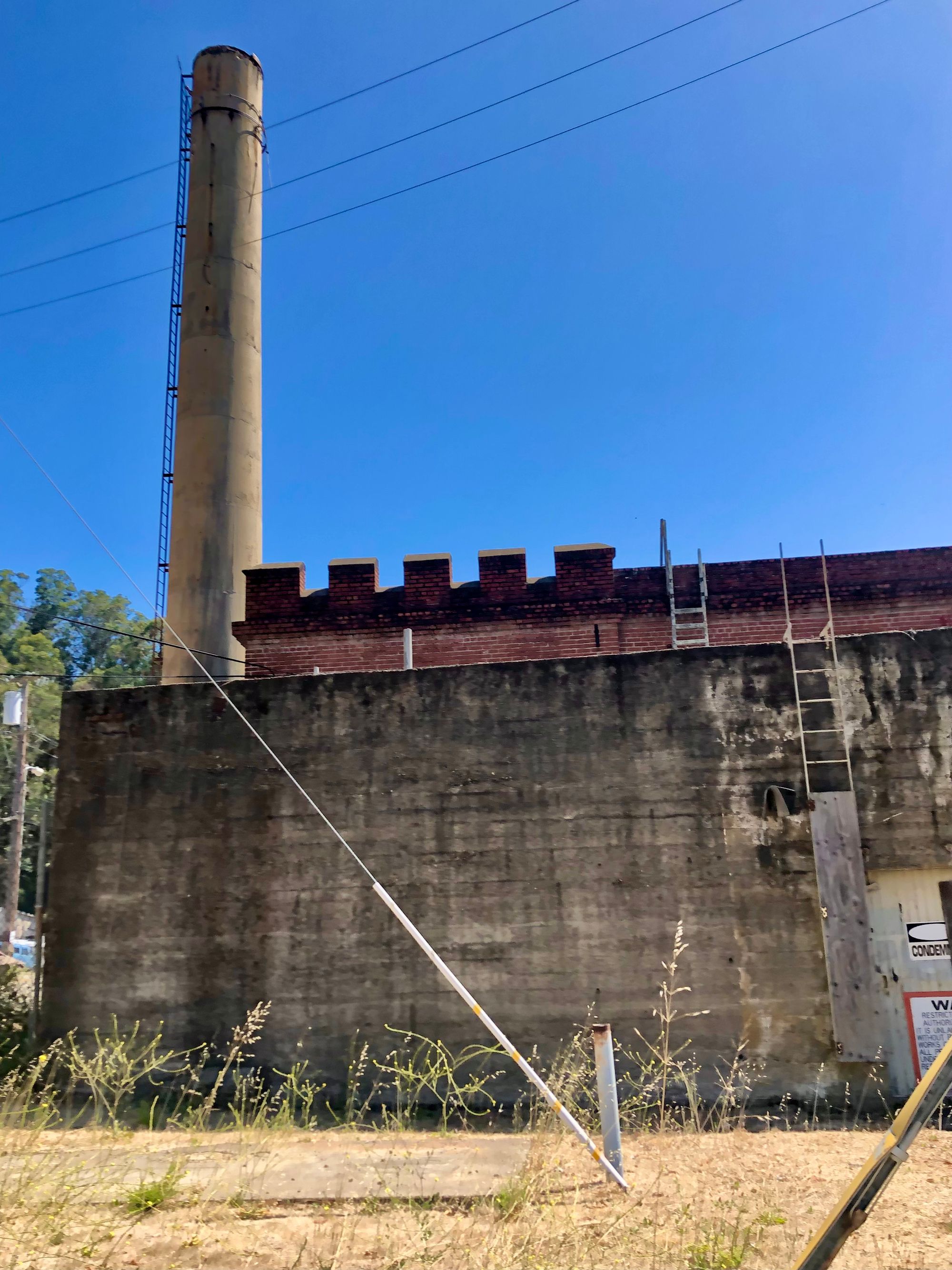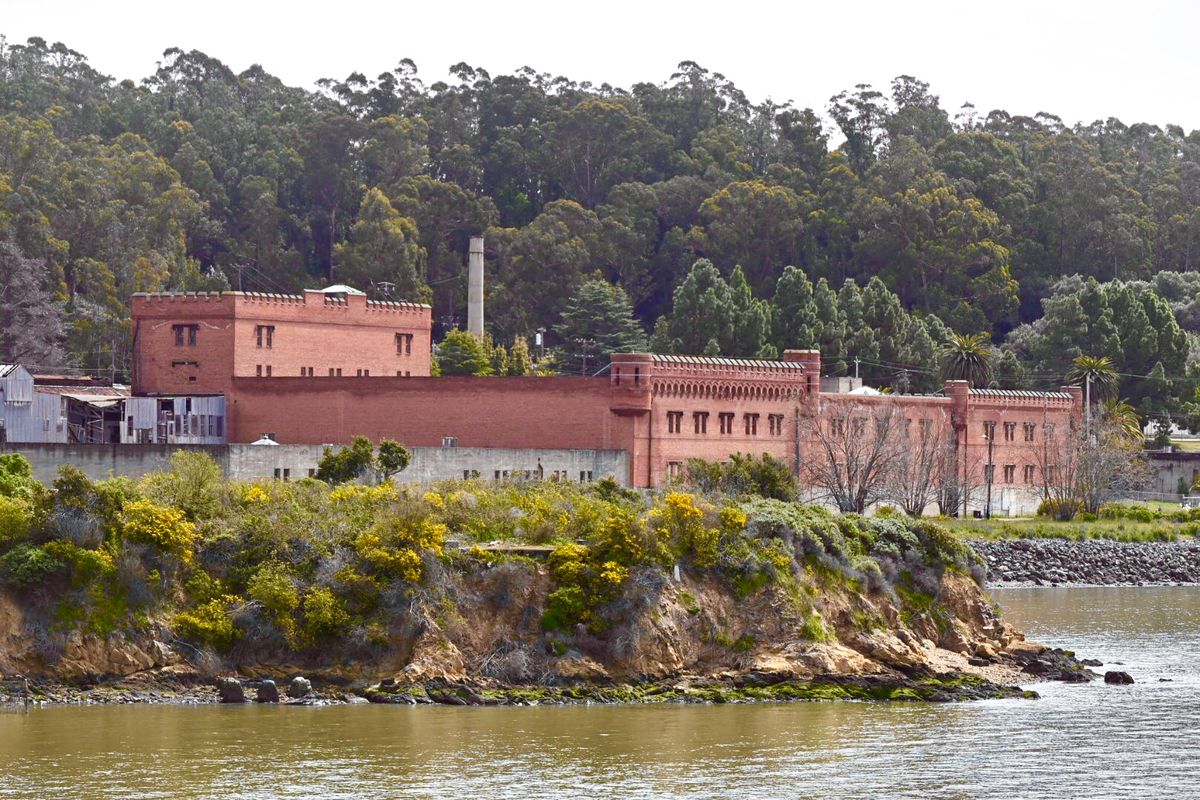

A nonprofit formed by two former Richmond mayors has filed a lawsuit in a bid to save historic Winehaven structures at Point Molate, once the location of the largest winery in the world.
Winehaven Trust is demanding the replacement of roofs and gutters, the stabilization of brick turrets as well as the repair of exterior elements to prevent water intrusion for buildings listed on the National Register of Historic Places.
Trust members claim failing to maintain the structures and allowing the buildings to deteriorate constitutes demolition by neglect. The practice of allowing historic buildings to deteriorate as a means of skirting historic preservation laws.
Trust board member Rosemary Corbin said Winehaven is a Richmond treasure. Corbin was mayor of Richmond when the city acquired Point Molate from the Navy as part of the military base closures program.
“Richmond has a long, rich history that newer cities envy. All of the great cities embrace their history, and those of us in earthquake country are handicapped by our youth,” Corbin said. “The fabric of a city includes the various eras it has gone through and the surviving remnants of those eras which tell their stories.”
The California Wine Association constructed Winehaven at Point Molate following the Great 1906 San Francisco Earthquake that destroyed many of its San Francisco facilities. The association is credited with elevating California’s winemaking reputation and would dominate wine production in California until Prohibition ended the party in 1919.
“When Winehaven was built, it was the largest winery in the world, and it made a statement with that lovely castle by the bay, Corbin said.
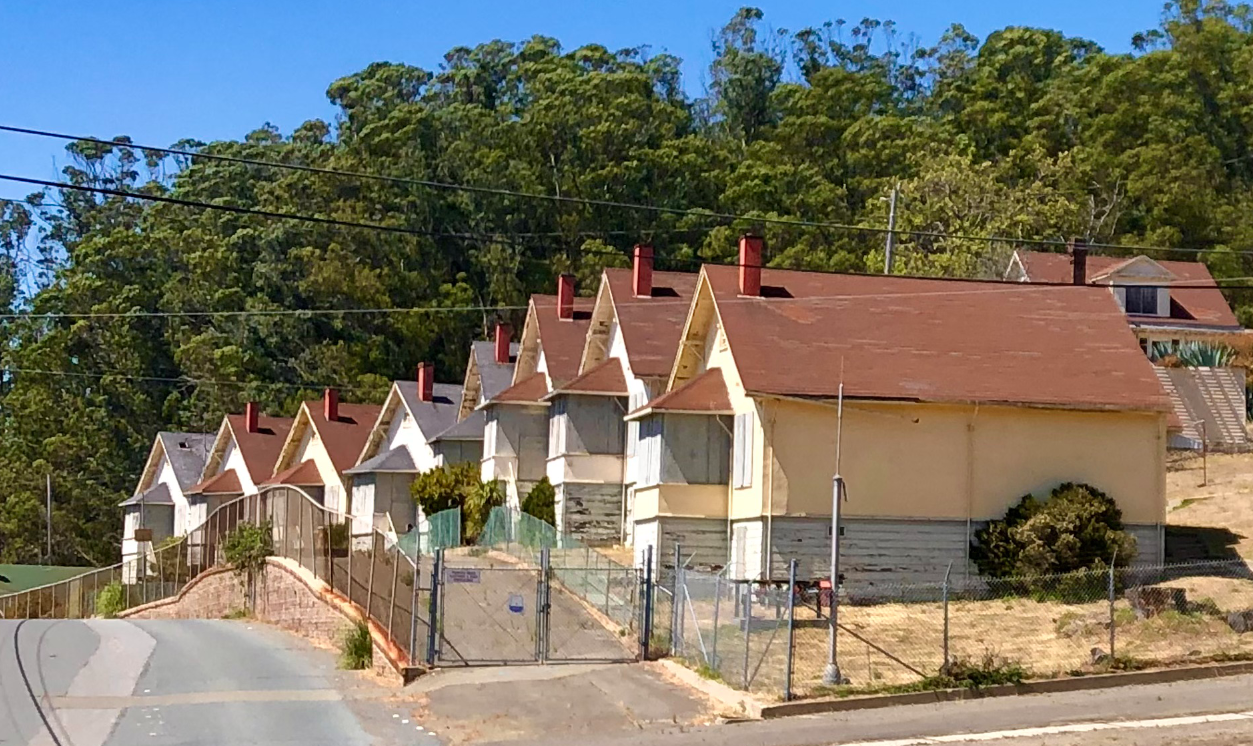
“The lovely, little Victorian houses created a nice community for the employees of Winehaven, and later for Navy personnel when the Navy acquired it for a fuel depot. “My daughter had a friend who lived at Pt. Molate when she attended Washington Elementary School in the 1970s. I used to drive her out there for play dates.”
Former mayor Tom Butt, president of the Winehaven Trust, said the roofs on some of the homes have failed, causing leaks that have rotted the roof sheathing and led to water-damaged interiors.
“The asphalt shingle roofs are significantly past their expected service life and should be expected to fail soon if they haven’t already,” Butt wrote in a letter demanding Point Molate Futures maintain the structures.
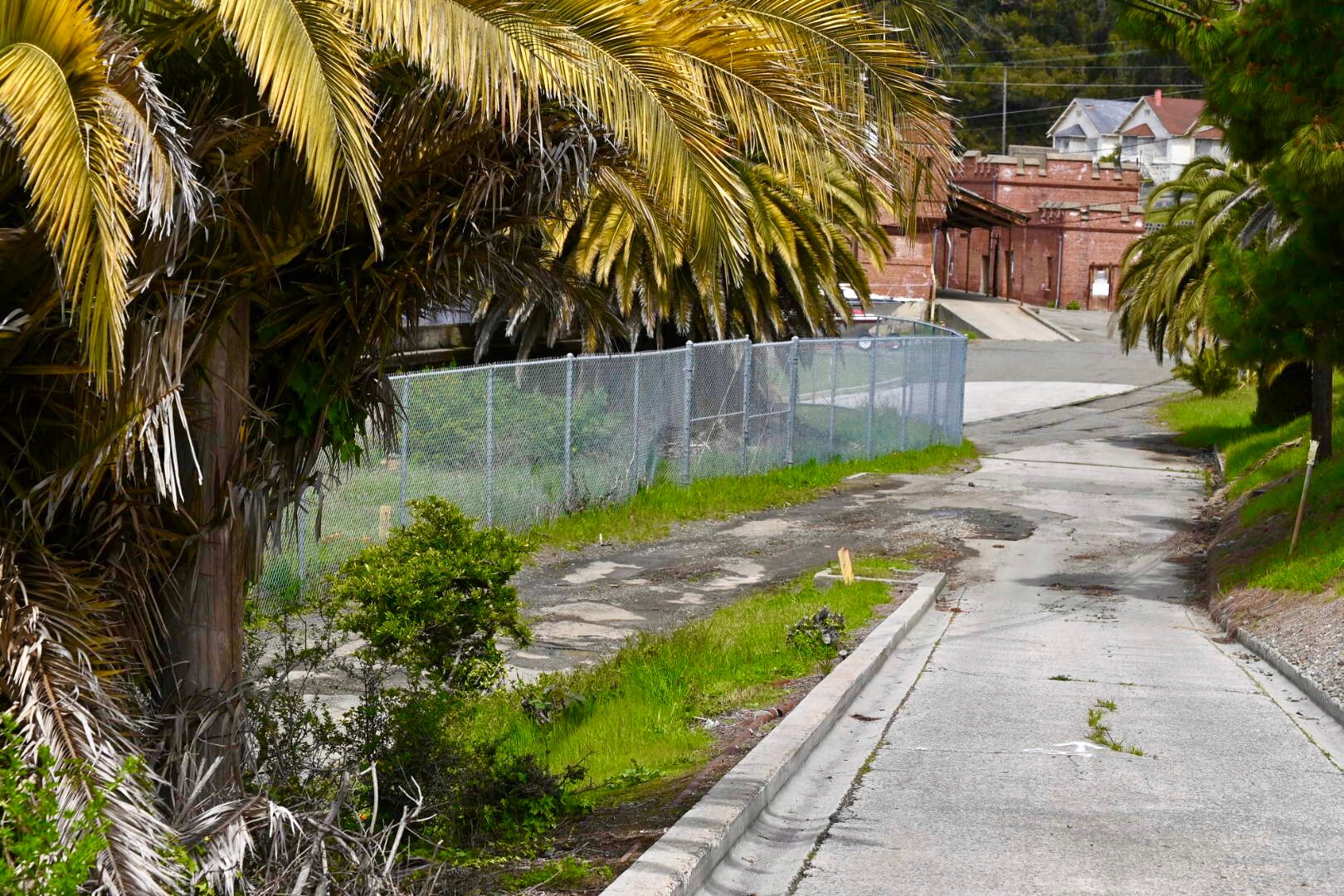
“Keeping the cottages secure is essential to avoid interior damage and vandalism. Just boarding is not enough. There has to be active 24/7 security,” Butt wrote.
Winehaven, along the shore of San Pablo Bay, with access to nearby shipping, and rail lines connected to the transcontinental railway, would go on to control the bulk of the California wine industry in the early 1900s.
“Winehaven crushed more grapes, blended more wine, and shipped more casks than any entity before it. Its dominance lasted until Prohibition,” Frances Dinkelspiel wrote in Tangled Vines, documenting the California wine industry.
Hundreds of winery workers lived at the Winehaven Hotel or in small bungalows on the grounds of the winery, including a school for workers’ children, a social hall, and a fire station, according to Dinkelspiel.
“The company constructed a brick building that resembled a medieval castle with crenelated parapets and corner towers. Its wine cellar was lined with concrete and could hold 10 million gallons of wine. There were bottling shops, cooperages, a sherry house, and a laboratory. A pier that stretched 1,800 feet into the bay allowed casks to be loaded directly onto waiting ships,” Dinkelspiel wrote.
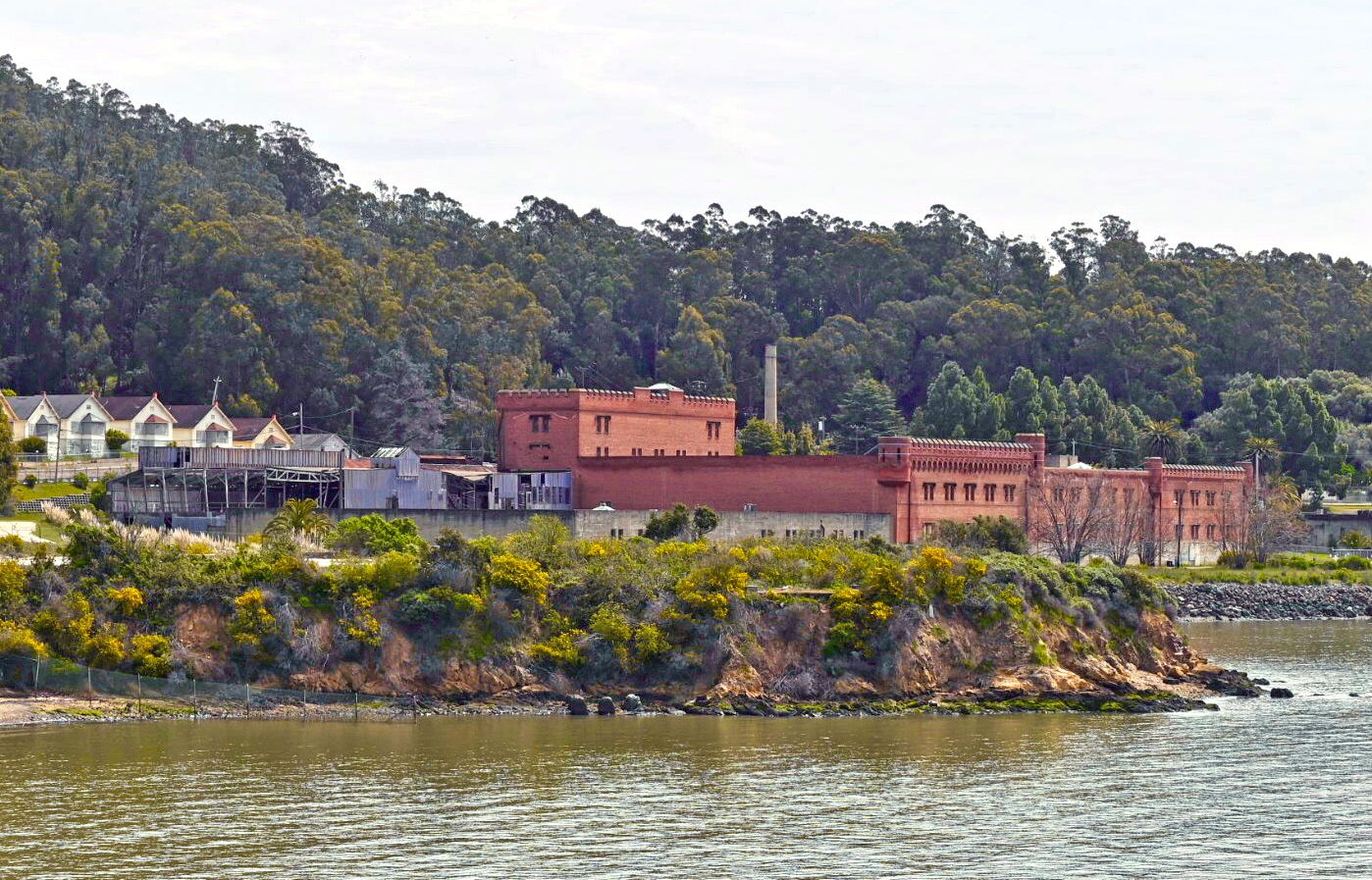
The primary warehouse and wine cellar Building 1 is the historic district’s anchor. The most dominant visual and physical element needs a new roof, a drainage system, and stabilization of the brick turrets and other features, according to Butt.
“The castellated brick building is unique in that it is built with a steel frame and reinforced concrete. The brick is a veneer and not structural, except at turrets. However, the brick at turrets and other appendages is cracked and failing,” Butt said.
Butt said he hopes the court will intervene and compel the City of Richmond and Point Molate Futures, LLC, to protect, maintain and preserve these irreplaceable assets that are important not only to the City of Richmond but to the entire State of California.
